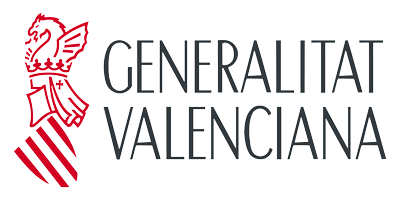The main goal of the Grisolia PhD project is to optimize (photo)electrocatalytic routes that allow obtaining added value compounds for the industry from the oxidation and reduction of compounds derived directly from biomass, without the use of sacrificial agents. As a first approximation, it will be studied 5-hydroxymethylfurfural (HMF) as starting material, both for oxidation and reduction. The specific objectives of the project are:
- Development of catalysts. Materials with catalytic activity in oxidation reactions and reduction of HMF will be deposited in thin films on conductive substrates. For this, it will be studied factors such as its chemical composition, absorption spectrum, demonstrated activity, as well as its structure and factors such as its chemical composition, absorption spectrum, demonstrated activity, as well as its structure and morphology in order to maximize the active area and reaction kinetics.
- Catalytic studies. The developed catalysts will be deposited on conductive substrates for analysis and optimization of its activity and stability in electrochemical and photoelectrochemical measurements in configuration of 2 and 3 electrodes. Factors such as compatibility with the reaction medium, solvents, electrolytes, catalyst substrate interaction, etc will be assessed. Basic measurements such as J V curves, cyclic voltammetry, chronoamperometry, etc., will be carried out to evaluate the behaviour of the materials developed for the different reactions proposals. Special attention will be paid to the selectivity with respect to the desired product of the reaction with different analytical techniques such as gas chromatography (GC) and liquid chromatography (HPLC) and nuclear magnetic resonance (NMR). It will be carried out the deposition of the catalysts on substrates that allow to increase the active area of the electrode, such as graphite rods, graphite sponges, etc. To complete the technical-economic valuation, the activity of the catalysts will be also assessed.
- Characterization and determination of reaction mechanisms. One of the key objectives of the project will be understanding the mechanisms that govern the operation of both catalytic electrodes and integrated photoelectronic devices. For this, a structural, compositional and morphological characterization will be carried out, as well as (photo)electrochemistry of materials and devices developed in the project. In particular, it will be analysed the influence of the structure, the chemical composition on the surface and the final morphology of the electrodes at level of nanometer in the activity of materials. Using electrical techniques, such as impedance spectroscopy (IS),
- The reaction mechanisms and limitations present in these catalytic (photo) electrodes will be determined. In the photoactive processes, properties such as the forbidden band, the alignment of the bands and the concentration of carriers will be analysed using optical and optoelectronic techniques (transmittance, transients, IMVS, IMPS, IPCE…). All the information obtained in this objective will be used to feed back the optimization process of the developed materials. Finally, models will be proposed that describe the (photo)electrocatalytic response both of the materials deposited on conductive electrodes as well as of the integrated devices.
- Integración de sistemas catalíticos y fotoactivos. Una vez optimizados, los electrodos y materiales (electro)catalíticos se combinarán con materiales fotoactivos externos, bien como fotoelectrodos integrados basados en óxidos metálicos o con semiconductores fotovoltaicos para que estos sistemas fotoactivos suministren la energía necesaria para llevar a cabo las reacciones sintéticas de interés sin necesidad de unaporte externo de energía como objetivo prioritario.
Supervisor: Elena Mas Marzá (emas@uji.es)
The purpose of this call is to grant scholarships for the training of research personnel (from countries not belonging to the European Union) at the Institute of Advanced Materials, Universitat Jaume I, Castelló, Spain (www.inam.uji.es).
The goal of these scholarships is to train qualified personnel for R&D tasks, and is aimed at university degree holders from non-European universities, within the corresponding field of research. These scholarships are open to people fulfilling the following requirements within the period of submission of applications:
a) A degree from a non-European university in the field of the sciences corresponding to the area of research to which the applicant is applying.
b) Having obtained a degree after 1st of January 2018.
c) Knowledge of spoken Spanish or English adequate for the development of the tasks involved in the proposed training.
d) Not being in possession of a PhD.
e) To meet the academic requirements needed to the admission in a doctoral program at the selection date (5 years Science degree or Science degree + Master Degree). The admitted candidates have to be registered in a doctoral program of Universitat Jaume I at the time of recruitment.
f) The MD degree in Science required are Chemistry, Chemical Engineering, Chemistry of Materials and Physics
The period of validity covered by the scholarships is for a maximum of 4 years or until defending the PhD Thesis. The scholarship is also granting with a year of postdoctoral orientation period for those pre-doctoral researchers who obtain the doctoral degree, prior to the start of the last year.
The scholarship includes an additional allocation of 1.600 euros in the first year, which is addressed to cover the travel and establishment expenses in Valencian Community.
If you are interested in applying for this job offer, click here






